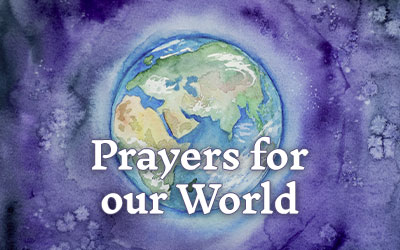Afghanistan – “a shabby, half-hidden retreat”

The conflict in Afghanistan – America’s longest war – is at an end, or so President Joe Biden is expected to declare this week. At an end, too, is Britain and Nato’s military involvement, dating back to the invasion that followed the 2001 al-Qaida attacks on the US. Except the conflict is not over. In truth, it is intensifying. What’s changed is that the western allies are, in effect, washing their hands of it.
By setting an unconditional US withdrawal date of 11 September shortly after taking office, Biden triggered an unseemly military scramble for the exit that has been joined by all residual Nato forces, including most UK troops. It now appears the vast majority will have left by the start of July, without ceremony or fanfare, almost by the back door. The fourth of July is American Independence Day. It may also come to be remembered as deserting Afghanistan day.
The official silence in Britain surrounding this shabby, half-hidden retreat is deafening – partly for justifiable security reasons, but also out of sheer political embarrassment. Ministers and army chiefs surely know his unilateral decision to quit, despite the absence of a peace deal or even a general ceasefire, is dangerously irresponsible.
The withdrawal has set Afghanistan back on the path to terror, mayhem and disintegration. A catastrophe is in the making. These are not the predictions of mere armchair critics. Gen Austin Miller, commander of US forces, warned last week that chaos beckoned. “Civil war is certainly a path that can be visualised if it continues on the trajectory it’s on. That should concern the world,” he said.
The impact on women and girls
Many Afghans say they expect that the Taliban will return to power, either via a power-sharing deal with the Afghan government or through sheer force. The group already controls around half the country, ruling by its own definition of Islamic law. And there is widespread fear that if they do, the Taliban will reintroduce its notorious system of gender segregation from when the group ruled in the late 1990s, which barred girls and women from almost all work, the right to vote and access to education.
If the scant gains won by women and girls in education disappear, it could have wide-reaching ramifications, from the role women play in shaping their country’s future to donor support that keeps Kabul’s hospitals open and government workers paid.
Experts see the treatment of women and girls by the Taliban as a barometer of the group’s future actions as they take over large swaths of the country. The restrictions on education could only be the beginning of a large-scale rollback of women’s rights in Afghanistan.
The Taliban have made quick territorial gains throughout the country since U.S. troops began leaving Afghanistan, including seizing at least 80 districts of the country’s approximately 400 since May 1, according to a tally by the Foundation for Defense and Democracies’ Long War Journal. More than one thousand Afghan security forces fled north into Tajikistan since last week.
Soon, beleaguered Afghan security forces will be left to fend off the Taliban and other extremist groups without any NATO firepower. In recent months, nonstate actors from the Taliban and groups aligned with Islamic State have targeted and killed a slew of women in the public eye, from journalists to health workers.
In early May, insurgents targeted students leaving school in Kabul, killing at least 90 people, most of them schoolgirls from the Shi’ite Hazara minority, an ethnic group long persecuted by the Taliban. Bloodstained backpacks and charred notebooks lay strewn among their dead bodies. The Taliban denied responsibility for the attack and condemned it but stopped short of heeding calls by the Afghan government and Washington for a permanent cease-fire. The Afghan president, Ashraf Ghani, blamed the Taliban, which pointed the finger at Islamic State.
Sources / More: The Observer, Time
Pray:
Pray with us that God will protect the most vulnerable in Afghan society, especially young girls and women (Isaiah 1:17)
Pray with us that the international community will come to realise its ongoing responsibilities towards this nation
Pray for political leadership on all sides, that it might focus on peace and reconciliation over violence and confrontation

